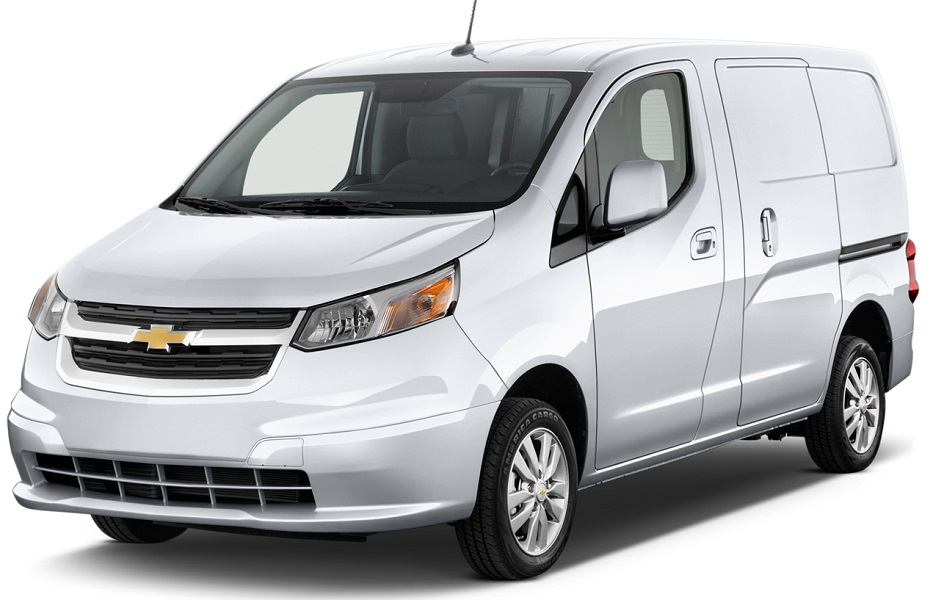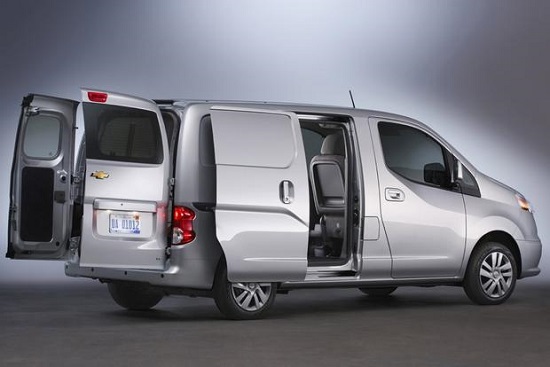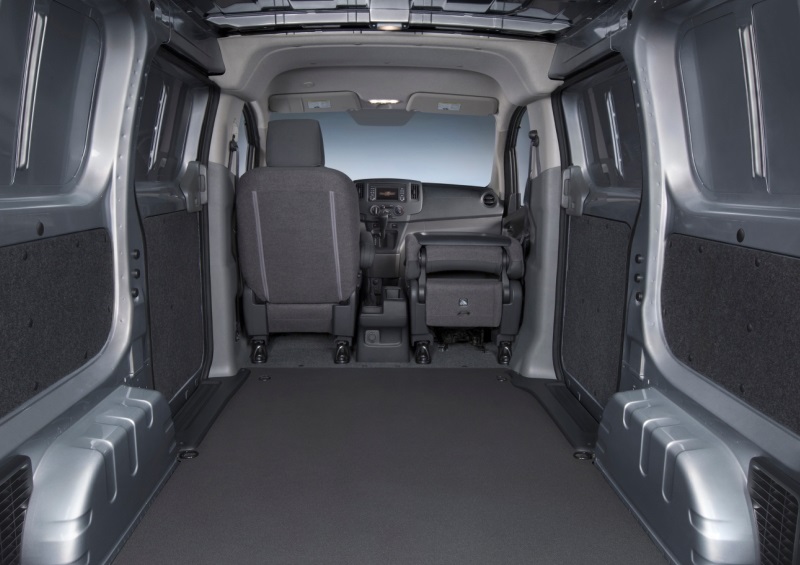
Chevy City Express - Ultimate Compact Work Van
Fundamentally a rebadged version of the Nissan NV200, the Chevy City Express is the bow-tie brand’s entry into the compact commercial van niche. The City Express has its premiere as 2015 model, 2 years after the Nissan NV200. Main competitors are the Ram ProMaster City, Ford Transit Connect, and a degree slightly bigger Mercedes Metris. While the U.S. market hasn’t given compact vans a warm welcome, they’ve received in Europe, this segment is still alluring to businesses who don’t require the large footprint and higher fuel expenses of a full-size van. Therefore, the Chevy Express is the perfect choice for those needing to deliver on confined city streets and narrow back streets. City Express isn’t so technologically equipped like its opponents Ram ProMaster City and Ford Transit Connect, but it does offer a lower price excellent fuel economy, and a substantial dealer network. 2019 Nissan NV200 S FWD | 2018 Chevrolet City Express LS FWD | ||
| Powertrain | Continuously Variable Transmission | Continuously Variable Transmission | |
|---|---|---|---|
| Drivetrain | FWD | FWD | |
| Fuel Economy, City | 24
MPG | 24
MPG | |
| Fuel Economy, Highway | 26
MPG | 26
MPG | |
| Fuel Tank Volume | 14.5 gal | 14.5 gal | |
| Engine | |||
| Fuel Type | Gasoline | Gasoline | |
| Power | 131 hp @ 5,200 RPM | 131 hp @ 5,200 RPM | |
| Torque | 139 lb-ft @ 4,800 RPM | 139 lb-ft @ 4,900 RPM | |
| Cylinders | 4 cylinders | 4 cylinders | |
| Compression Ratio | 9.7:1 | 9.7:1 | |
| Displacement | 2,000 cc | 2,000 cc | |
| Bore x Stroke | 3.31 in x 3.55 in | 3.31 in x 3.55 in | |
| Safety | |||
| ABS Brakes | Standard | Standard | |
| Driver Airbag | Standard | Standard | |
| Passenger Airbag | Standard | Standard | |
| Front Side Airbags | Standard | Standard | |
| Curtain Airbags | Standard | Standard | |
| NHTSA Crash Test Results | |||
| Comfort and Convenience | |||
| Air Conditioning | Standard | Standard | |
| CD Player | Standard | Standard | |
| Radio | Standard | Standard | |
| Power Windows | Standard | Standard | |
| Power Door Locks | Standard | Standard | |
| Interior | |||
| Maximum Seating | 2 seats | 2 seats | |
| Front Legroom | 42.6 in | 42.6 in | |
| Back Legroom | -- | -- | |
| Payload and Towing | |||
| Cargo Volume | 122.7 cu ft | 122.7 cu ft | |
| Maximum Payload | 1,502 lbs | 1,500 lbs | |
| Exterior | |||
| Length | 186.3 in | 186.3 in | |
| Width | 68.1 in | 68.1 in | |
| Height | 73.7 in | 73.7 in | |
| Wheelbase | 115.2 in | 115.2 in | |
At first sight, it might be challenging to distinguish between the two, aside from differing front end treatments. That's because the powertrain, body shell, and engineering of the City Express have been all adopted from the Nissan NV200. Power Both vans have the identical powertrain, a 2.0L four-cylinder engine with 131 horsepower and 139 lb-ft of torque, with the same 24 mpg city/26 mpg highway fuel economy rating, and the identic 122.7 cubic feet of cargo room. While these numbers are fantastic for a cargo van, it's the warranty and standard features that push the NV200 ahead of the City Express. Safety & Security NV200 and the City Express have front-wheel drive, traction control, standard driver and passenger frontal airbags, side-impact head airbags, front side-impact airbags, front seatbelt pretensioners, height-adjustable front shoulder belts, four-wheel antilock brakes, daytime running lights, plastic fuel tanks, rearview cameras, available rear parking sensors, and electronic stability systems to prevent skidding. Warranty The Nissan NV200 comes with a full 5-year/100,000-mile basic warranty, which covers the entire van and offers free 24-hour roadside assistance. The City Express’ 3-year base warranty expires 2 years and 64000 miles sooner. The NV200’s corrosion warranty is unlimited miles longer than the City Express’ 100,000 miles. Price Despite the resemblances of chassis and the higher-level features of the NV200, the Nissan comes at a lower MSRP (manufacturer’s suggested retail price) of $22,945. The Chevrolet City Express starts at $23,850 MSRP.
Chevrolet Express Cargo Van Pros & Cons
Fleet operators will like what the Chevrolet City Express brings to the table. The compact cargo van offers strong fuel economy and affordability. You can rely on it to get the job done with no stress. While behind the wheel, you’ll undoubtedly appreciate its easy-to-drive style. Additionally, there are some useful features and disadvantages on the van’s list of options.



